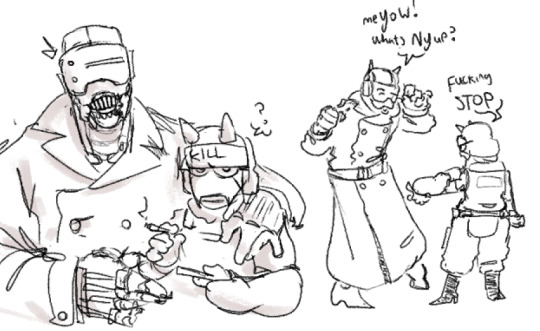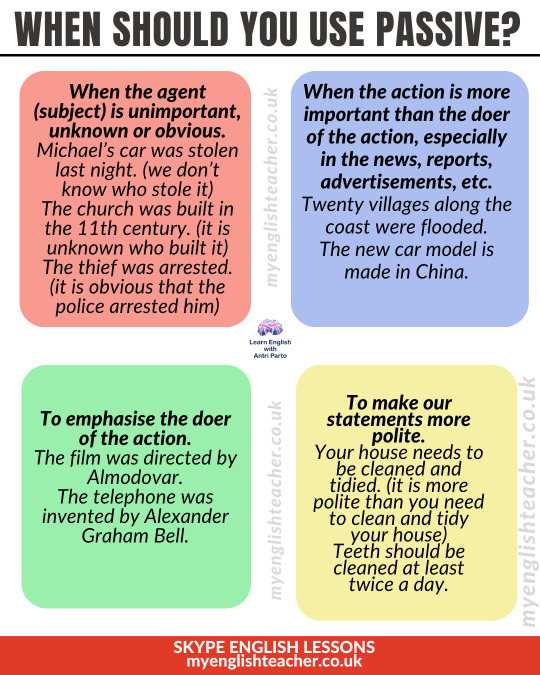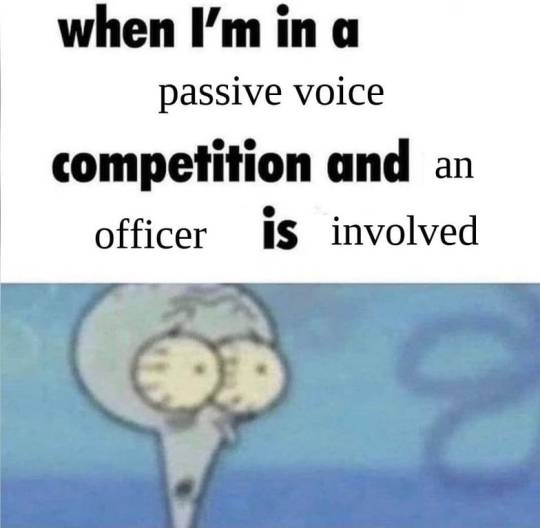#passive voice
Text


Elon will probably have the community note removed, like he usually does on any facts that don’t conform to his opinion
#politics#media bias#passive voice#palestine#israel#gaza#the media is complicit#community notes#twitter#journalism fail
9K notes
·
View notes
Text
i am given birth to by my mother. i am brought home to a falling-apart trailer. i am fed and i am not fed enough. i am aged into a small being with opinions and some semblance of autonomy; my childhood is a video game and i am given three objectives: sit down, stay quiet, and cease to exist. i am made good at the last part; it is a god-like sort of art, and so i do. silence is suited for me as well as i am suited for silence.
i am told, gently, by my third-grade teacher to stop writing in passive voice. the noun of the sentence should be the actor, the doer, the taker. i am not a taker. never the actor of my own consciousness, of my own unconsciousness, remember, now, i am ceasing to exist.
i am uprooted like a wilting plant, no sunlight, chipped terracotta pot, placed, never planted. grow, says the sunlight seeping between the drawn shutters, and i deny its case. i am made a masochist at all of eight-years-old, i am made for withering away. i am made mother, made martyr, made clever, made more, made machine.
i am placed in a foster home and told the new rules. i will sleep at 2130 and wake at 0600. i will eat blueberries and coconut yogurt and i will make good grades. i will behave. i will sit down, i will stay quiet, and i will cease to exist.
i am told, gently, by my ninth-grade teacher to stop writing in passive voice. like this, you are the subject of the sentence. i am brought home; i am subjected to my sentence. i am taught, i am created, i am embittered, i am disillusioned, i am ceasing. it is all i know how to do.
blurring letters litter the pages before me. maya angelou, oh pray my wings are gonna fit me well. oh, tell the hell-child to return to her cell. mangled beast, worthless mongrel, ceasing. perfect child, perfect victim, passive. the sentences are diagrammed by my expert hand and i am diagrammed as well, pages in a folder, problem child, trouble-maker, mentally unstable. infinitive, preposition, page-break.
my eleventh-grade teacher is asked why was it okay for maya angelou to write in passive voice? she responds, because to write in active voice would take the focus from the corpse to the crew. i like that. i understand it. the pages aren’t so blurry anymore. i trace them with my fingertips, letter-by-letter. her bones were found//round thirty years later//when they razed//her building to//put up a parking lot.
i am no longer still, silent, ceasing. i am no longer wilting, and no longer made, i am maker.
grow, says the sunlight seeping between the drawn shutters. i am neither the corpse nor the crew. i reach forward with trembling hands,
and i pull the cord, and the light floods through.
#poetry#poem#poets on tumblr#spilled ink#spilled poem#parentification#original poems#poetic prose#poetry community#poets and writers#foster care#tw: death#tw: neglect#tw: emotional abuse#passive voice
658 notes
·
View notes
Text
How To Identify Active vs Passive Voice In Your Sentences
To clarify, active voice is when the subject is performing the action, experiencing the emotion, etc. and passive voice is when the subject undergoes the action, emotion, etc. These basically come up in sentence structure as a way to make a character feel like they have more or less agency
The way to identify the difference, or at least the way I’ve used for years, is to put ‘by zombies’ after the verb. If it’s coherent, it’s passive voice, and if it isn’t, it’s active. Let’s use some examples:
“She was killed (by zombies)” -> coherent, passive
“Zombies killed (by zombies) her” -> incoherent, active
And the effect of these techniques in your writing is to make the subject read as though they have more or less agency depending on the situation, even without changing what’s going on in the scene. Neither is necessarily better than the other, it’s all about utilisation in the correct circumstances
Now some longer, Tumblr friendly examples, and you can try and practice identifying active and passive voice if that can help you:
“You kneel before my throne unaware that it was built on lies”
“It may not be that deep, but the ground is soft and I’m ready to dig”
“I hope I make it a little softer here for someone”
“If they won’t match your effort, they don’t want to be in your life”
“God may judge you but his sins outweigh your own”
#active voice#passive voice#writing voice#writing#writers#writeblr#bookblr#book#writers on tumblr#writerscommunity#writers of tumblr#writer#how to write#on writing#creative writing#write#writing tips#writblr#female writers#queer writers#writer things#writing is hard#writing advice#writing life#writer problems#writer stuff#writerscreed#writing tips and tricks#writing tool#writersnetwork
78 notes
·
View notes
Text




assorted warmups
#burgahart#force trauma#balder#vera#metronome#boni the worm#sergio#passive voice#pepperman i guess? like hes there technically
59 notes
·
View notes
Text
See how they remove Israel as the perpetrator in these reports? A school-turned shelter "was damaged", killing people, "this comes after heavy bombardments in the area", "she was displaced and killed"... There is no mention of who is doing all the killing and war crimes.

https://www.unrwa.org/newsroom/official-statements/gaza-strip-four-unrwa-shelters-damaged-less-24-hours
#palestine#israel#free palestine#gaza#israel palestine conflict#palestinian genocide#free gaza#israeli war crimes#war crimes#reporting#passive voice#the amount of jumping through hoops they do to let Israel being on a murderous rampage pass unchallenged
20 notes
·
View notes
Note
not really a question about a specific sentence/situation but after finally getting comfortable with spanish pronouns i discovered that there are certain indicators for passive voice and one of them is se. in what contexts would you use this passive voice in spanish and could you explain more about the construction?? your blog is very helpful btw!!
This is one of the weird parts of Spanish - se has many functions and so it can be really confusing to see them all in different ways
I'm going to have a LOT to say below, so bear with me it's a long read and I'll try to explain everything, just know that a lot of it is very advanced in places
-
I'm assuming that you've seen se used in reflexives/pronomial verbs [like lavar "to wash" vs. lavarse "to wash oneself"]...
...And that you've probably seen se used to replace le/les when you're doing indirect objects + direct objects... lo escribo "I write it", le escribo "I write to him/her", then se lo escribo "I'm writing it to him/her"
...
Grammatically just know that se has MANY functions and they're all generally 3rd-person-related, and carries a more impersonal function
-
As for se in passive voice, first let me explain passive voice - I'm sure you have an idea of what it is but I'm going to briefly explain it like you're 5 so I'm sorry about that
Passive voice places emphasis on the object rather than the subject
Active voice = Subject verbs an object
Passive voice = An object is verbed (by Subject)
When you're first introduced to passive voice it's often done with ser in past tense + past participles + por (alguien)
El libro fue escrito en el siglo XVI (dieciséis). = The book was written in the 16th century.
El libro fue escrito por Cervantes. = The book was written by Cervantes.
escrito/a "written" being the past participle of escribir "to write"... and an irregular one at that; a past participle is really just the adjectival form of a verb
Most participles end in -ado or -ido; as adjectives they can change, but as past participles they're unchanging
[in other words: ha escrito "he/she has written", and then fue escrito/a "was written"]
Other more common examples:
Las galletas fueron horneadas por la pastelera. = The cookies were baked by the pastry chef (f).
El hombre fue empleado por la compañía. = The man was employed by the company.
La mujer fue empleada por la compañía. = The woman was employed by the company.
Fuimos contratados. = We were hired. [m+m, m+f]
Fuimos contratadas. = We were hired. [f+f]
Because passive voice focuses on the object, the verb will conjugate according to them... that's why las galletas fueron horneadas
If you wanted to phrase it in active voice: la pastelera horneó las galletas "the pastry chef (f) baked the cookies"
The por alguien part is not necessarily needed such as in fuimos contratados / contratadas.
-
As for passive voice with se, there's one more thing I need to point out
There's another almost identical construction that uses se and that is "impersonal se"
The more impersonal Spanish gets, the more se gets used... this is "one does" or "someone does"; an undefined person, often "one", or a "you" or "they" in English
¿Cómo se hace un pavo asado? = How do you make/cook a roast turkey?
Like I said though, they look almost exactly the same so your translation might change depending on what you mean; but in Spanish they're very slight differences:
Se habla español. = They speak Spanish. [impersonal]
Se habla español. = Spanish is spoken. [passive]
If you're reading about what languages a country speaks, these are pretty much the same idea so it's easily interchangeable.
¿Cómo se pronuncia llamar en Argentina? = How do they pronounce llamar in Argentina?
¿Cómo se pronuncia llamar en Argentina? = How is llamar pronounced in Argentina?
The only real difference is that impersonal is ALWAYS singular [because the subject as a "they" is considered singular ambiguous "they"]
And passive voice with se can be singular OR plural because it adheres to the object... which could be plural:
Se hizo un pastel. = They made a cake. [impersonal]
Se hizo un pastel. = A cake was made. [passive]
Se hizo pasteles. = They made cakes. [impersonal]
Se hicieron pasteles. = Cakes were made. [passive]
-
Now we get into the more advanced stuff, and I mean this is C2 level the most advanced and least explained parts of se, that native speakers will use and your textbooks rarely talk about
This whole thing is classified as "superfluous dative" which is a linguistic subset - essentially times you use se when it doesn't seem to fill a grammatical function
[note: "dative" means "indirect objects", or "to whom or for whom something is done" - it places more emphasis on who is receiving the benefits/inconveniences of something that is done]
Predominantly it's used in dativo ético or "ethical dative", which again just means it places more emphasis on the person receiving the benefits/inconveniences which will make sense later. But for linguistic purposes in things I barely understand, just know that superfluous dative has multiple terms under it for specific functions/things but dativo ético is probably the most common one under that umbrella
...
The passive se is especially used in expressions of things that "were done", or things that "happened" to people. This is most commonly used for things that were unexpected, inconvenient, or for trying to place the blame on someone else
You'll probably notice this in verbs that are "reflexive" but don't have the same reflexive meaning you normally associate with the idea... Meaning that lavar "to wash" and lavarse "to wash oneself" makes sense, but then you'll have something like dormir "to sleep" vs. dormirse "to fall asleep"
...And dormirse doesn't come out as "to sleep oneself" so it is a bit weird as a reflexive... that's dativo ético
This is most commonly introduced with olvidar vs. olvidarse
olvidar = to forget [which feels purposeful in some cases]
olvidarse (de) = to forget [which is more common]
But you'll have seen it with other verbs like ir/irse "to leave/to go away", mudar/mudarse "to change / to move (residences)" or romper/romperse "to break/break down" and also morir/morirse which morir is "to die", but people will sometimes use moririse as "to pass away suddenly".
The -se endings seem to give the verb a whole separate meaning or more nuance
It can be used as a with additional indirect objects to show specifically who was benefitted/inconvenienced:
Se acabó. = It's over. / It ended.
Se me acaba el tiempo. = Time is running out for me.
Rompí el coche/carro/auto. = I broke the car. [purposeful]
Se rompió el coche/carro/auto. = The car broke down. [on its own]
Se me rompió el coche/carro/auto. = The car up and died on me.
Se me durmió la pierna. = My leg fell asleep (on me).
Se me durmieron las nalgas. = My butt fell asleep (on me).
Mis estudiantes se me dormían. = My students were falling asleep on me. [as in "my students were falling asleep during (my) class"]
Se me cayó el diente. = My tooth fell out.
Se me olvidó el libro. = The book totally slipped my mind.
Se me olvidaron las llaves. = I forgot my keys. / My keys completely slipped my mind.
*Note: In these cases you'll be using indirect objects... so se + me/te/le/les/nos/os + verb
You'll occasionally see this written in infinitive form with the le attached... like olvidar "to forget", olvidarse "to forget" (more passive), then olvidársele "to slip one's mind" meaning extra passive dativo ético
...
And so you'll find that with passive and expressions like this objects will "become forgotten (themselves)" to someone, a bus will "leave itself to someone", etc
These expressions carry an inherent lack of control and occasionally lack of guilt or responsibility... like saying se rompió el espejo reads like "the mirror broke all on its own" and implies you had nothing to do with it, while se me rompió el espejo implies that it also negatively affects you but that you had nothing to do with it
#spanish#learning spanish#learn spanish#spanish grammar#langblr#la gramatica#passive voice#la voz pasiva#all about se#asks#long post
30 notes
·
View notes
Text

The clearest image ever taken of Mars.

The last image taken by Cassini before it was deliberately smashed into Saturn’s atmosphere.
#mars#Saturn#space#space exploration#passive#the passive#passive voice#the passive voice#trolleng#trolledu#superlatives
6 notes
·
View notes
Text

This is perhaps the most dehumanizing case of passive voice I have ever seen.
#free palestine#palestine#gaza#from the river to the sea palestine will be free#free gaza#israel#free free palestine#passive voice#washington post
7 notes
·
View notes
Video
How US Corporate media and state propaganda advance ruling class interests at home and abroad
#tiktok#propaganda#corporate media#CIA#Manufacturing Consent#labor vs capital#capital vs labor#labor rights#labor#investigative journalism#journalism#passive voice#American backed coup#coup#social media#internet#voting#voter supression#voting rights#Voters#beach boys
36 notes
·
View notes
Text


A humanitarian crisis is what happens after a natural disaster like a tsunami, or a hurricane, or an earthquake. A humanitarian crisis is when an unexpected accident happens. A humanitarian crisis is what happens to marginalized communities in a pandemic. Indiscriminately bombing a population of noncombatant civilians and then intentionally depriving them of food, water and medical access is a deliberate war crime, NOT some random act of nature. Words matter. Calling the aftermath of bombing civilians “a humanitarian crisis” is no different than using the passive voice to describe Israel’s war crimes without directly attributing them to Israel. Please do not let the well documented displacement, and the meticulously planned out ethnic cleansing and genocide of Palestinians… don’t allow that to be whitewashed and erased away into some kind of unfortunate “accident” of nature.
And don’t even get me started on the tired media trope of labeling non-white starving people, “looters” when they take food to feed their families…
#politics#euphemisms#whitewashing history#palestine#gaza#israel#whitewashing#hamas ≠ palestine#nakba#genocide#ethnic cleansing#bds#boycott divest sanction#settler colonialism#israel is an apartheid state#benjamin netanyahu is a war criminal#war crimes#humanitarian crisis#passive voice#framing matters
2K notes
·
View notes
Text
Passive Voice
Hello English learners. Welcome to the new lesson. We are having an interesting grammar lesson today – passive voice.
Do you know what passive is? Well, sentences can be active and passive. What is the difference between them? Word order in a passive sentence is subject + verb + object (the subject is performing an action over an object), while in a passive sentence object…
Continue reading

View On WordPress
8 notes
·
View notes
Text
Now that I can identify passive voice, finding it in my re-reads of my own work is SO ANNOYING. GAAAAAAAAAAAAH.
3 notes
·
View notes
Text
Active and Passive Voice
*Use of the active and passive voice is according to the tone of the language and use of subject or object. Mostly active form is used in direct form when subject is active while passive voice is used to express something in indirect or passive tone, means subject is passive.
Present Tense
1. Present Indefinite / Simple Present
// S + V1(s/es) +O **Active Voice
// O + is /am/are + V3+ by + S **Passive voice
Active :She loves the cats.
Passive : The cats are loved by her.
Negative sentence : // S+ do/does+not + V1 + O ( active)
//O+ is / am /are+ ( not) +V3 +by + S. ( passive)
E.g
She does not like him. (A)
He is not liked by her. (P)
2. Present Continuous Tense
To change Continuous Tense into Passive form is/am/ are + being +V3 is used.
E.g: They are reading a newspaper. ( Active)
A newspaper is being read by them. (Passive)
Negative sentence : She is not holding a meeting this week. (Active)
A meeting is not being held by her this week. (P)
3. Present Perfect tense
The has/have +been +V3 form for Present Perfect tense is changed into O +has/ have + been +V3+by + S
E.g:
//The teacher has completed the lesson.
// The lesson has been completed by the teacher.
#writing#ieltswriting#ieltstips#ielts#vocabulary#englishvocabulary#ieltsvocabulary#ieltsacademic#ielts online course#grammar#tenses#present tense#sentences with vocab#sentence formation#sentence structure for task 1 ielts#english sentences#sentences in English#Voice#Active Voice#passive voice#active and passive#Active and passive voice
21 notes
·
View notes


